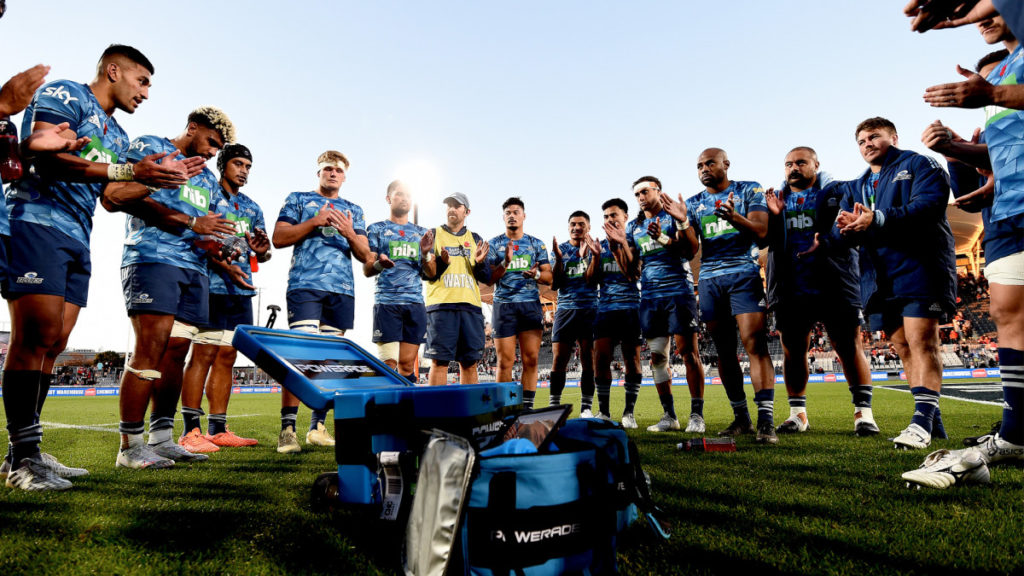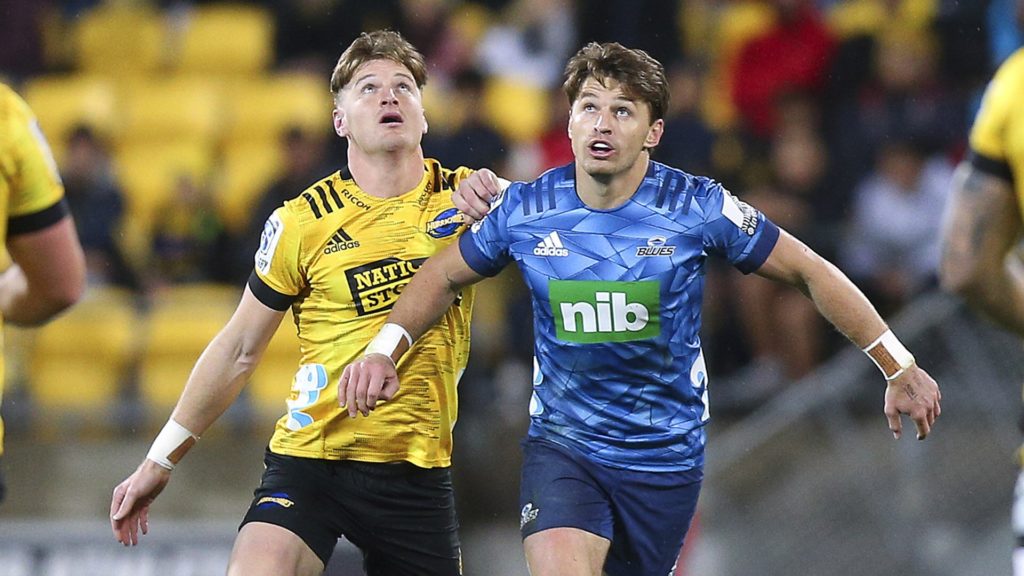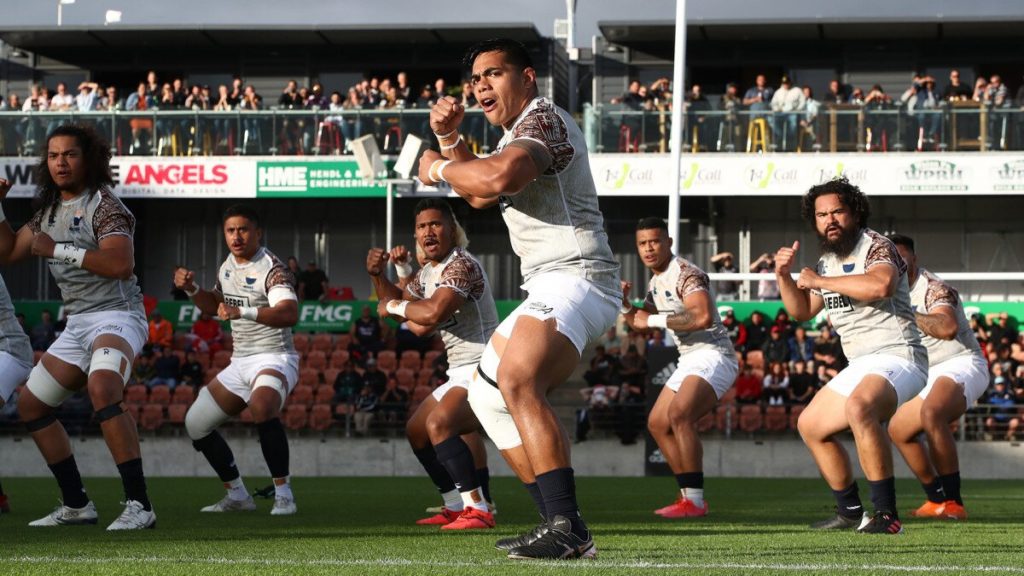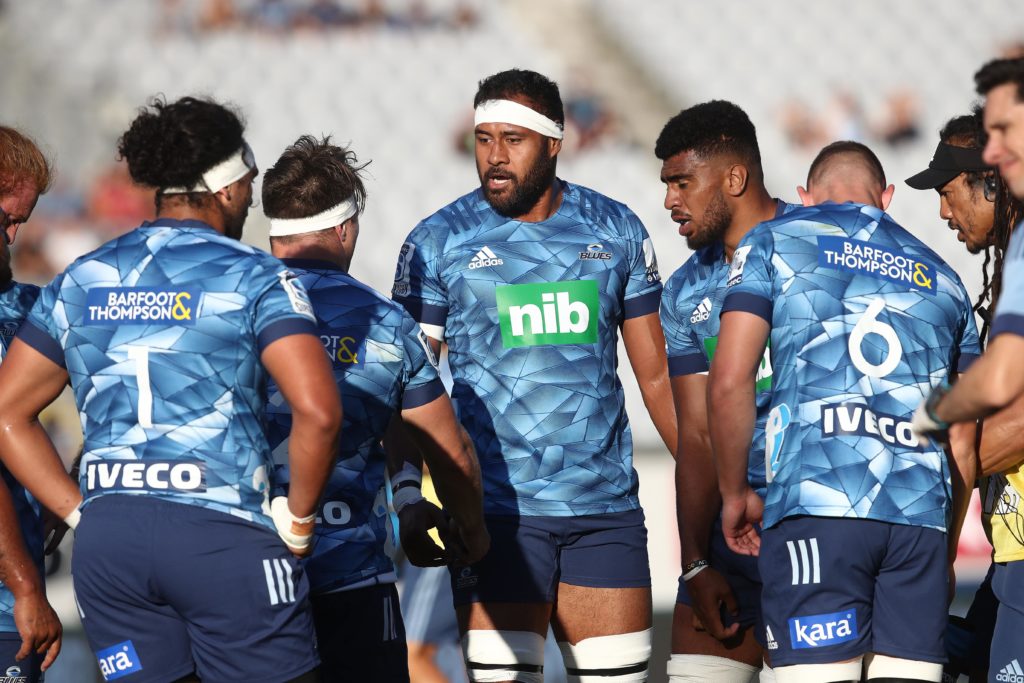There is a sense that things could be unravelling at the Blues. A season that was bang on track in early March, has reached late April in a state of chaos and losing to the Crusaders in Christchurch could potentially be a blow from which the club can’t recover.
Their Super Rugby Aotearoa aspirations have ended after the 29-6 defeat. The Blues are out of the running to make the final and a fan base that has endured so much heartbreak will legitimately ask whether it will ever end.
Given the Blues haven’t won anything since 2003 and have managed to appear in just two semi-finals in the last 17 years, one more failed campaign hardly feels like it will be the straw that breaks the club’s back. One more season of under achievement is surely just business as usual?
But this season is in fact different. Failure in 2021 will be significantly harder for the Blues to bounce back from than it has been at any time in the last 18 years.
There’s a foreboding sense that they might be an unfixable club. In years gone by there have been mitigating factors to explain, at least to some degree, why they have battled away at the wrong end of the table.

For years fans have accepted that the Blues have been embattled by factors outside the club’s control. They face unique challenges recruiting talent in Auckland where every other Super Rugby in New Zealand and Australia, as well as the NRL and AFL are all scouting and buying.
Auckland’s sky-high property prices – which are so out of whack with the rest of the country – are a major deterrent in signing the best players and then there is the city’s reputation.
Provincial New Zealand maintains a healthy dislike of Auckland – it is still viewed as the big smoke that wins more than its fair share of Government funding for infrastructure projects and has a tendency to mock the hicks from the farmlands.
The city has traffic issues and the club, for a long time, had no partnership with a tertiary institution to help attract young players with the lure of subsidised or paid-for study.
The Blues have found it hard to recruit and retain and as a consequence have battled to hire the right coaches and a vicious cycle has kept them in the lower reaches of the competition for an age.
When this season kicked off, there was unanimous belief that the Blues would be pushing hard to be in the final of Super Rugby Aotearoa. There was no longer any compelling reason to discount them.
But the arrival of Leon MacDonald in 2019, who took over as head coach and packaged Tom Coventry, Tana Umaga and Daniel Halangalu around him was considered a significant breakthrough.
It gave the Blues the coaching horsepower they needed and hadn’t had since Graham Henry worked in the background with Peter Sloane in 2003.
For the first time in almost 17 years, the Blues had a coaching panel that was the equal of any in the competition and big name players suddenly wanted to come.
Beauden Barrett turned his back on the Hurricanes for the Blues. Nepo Laulala then left the Chiefs to come North, as did Karl Tu’inukuafe. Dillon Hunt was persuaded to return to his city of birth and Sam Darry, a hot, youthful prospect at the Crusaders, gave it all up for a three-year deal with the Blues.
When this season kicked off, there was unanimous belief that the Blues would be pushing hard to be in the final of Super Rugby Aotearoa. There was no longer any compelling reason to discount them.

There was no longer anything missing from their set-up and not only had new arrivals come from all over the place, the local-grown talent had blossomed. Caleb Clarke, Hoskins Sotutu, Alex Hodgman and Akira Ioane all made the All Blacks last year and when the Blues won their opening two games so convincingly, it seemed that everything had finally fallen into place.
But here we are now, six weeks on, and they have plunged in form and confidence, incurring four defeats that were all largely of their own making.
The same old problems that have haunted the Blues forever – poor decision-making, ill-discipline, erratic execution and wildly inaccurate patches of play – have been as prevalent in the last few games as they have at any time since 2003.
In Christchurch, as they have all season, the Blues gave away needless penalties for being offside and tripped themselves up with poor execution in the red zone. In short, the Blues have been frantic and panicky when those big moments have swung into action.
The problem for the Blues is that they no longer have reasons that can explain why they continue to have such catastrophic malfunctions. They have a world class forward pack that has suddenly lost its ability at set-piece.
That’s something we really focused on before the season, honing it down to getting our set piece right so we could let our backs play and bring our forwards into the game by carrying and cleaning hard. We’ve been missing a bit of that, we’ve been having it in dribs and drabs.
Blues captain Patrick Tuipulotu
They are giving away multiple penalties for the same infringements and showing little sign that they are a team with a growth mindset. In fact, the last few weeks the Blues have played as if they are beset with endemic issues – that no matter who coaches the team or wears the jerseys, the decision-making will be flawed and the club doomed to lose.
As injured captain Patrick Tuipulotu, said before the match in Christchurch: “Our penalty count is ridiculous – we can’t operate with those numbers. If we sort that out we can play well but we’re not getting our proper game going.
“I’m not happy with our scrum – it’s not going forward enough for us to play off and the same thing with our lineout. We’re struggling to win some good ball and when we’re mauling we’re not really getting good pay out of it. When you pull all those things together it adds up to not good performances.
“That’s something we really focused on before the season, honing it down to getting our set piece right so we could let our backs play and bring our forwards into the game by carrying and cleaning hard. We’ve been missing a bit of that, we’ve been having it in dribs and drabs, so the challenge is to put it all together and keep other teams out.”
What makes failure this season even more damaging, is the Blues now find themselves in what will be a never ending tug of war for talent and fans now that Moana Pasifika have been granted a Conditional licence to enter Super Rugby.

The rugby romantics are rejoicing that Pasifika is finally gaining the presence it should always have had, but for the Blues, the new entrant is a problem. A big problem.
Moana general manager Kevin Senio has confirmed that 80 per cent of their recruits will have to eligible for one of the Pacific Island nations.
That means that the likes of Akira and Rieko Ioane, Ofa Tuungafasi, Nepo Laulala, Tuipulotu and Caleb Clarke are essentially off limits – but enormous numbers of players the Blues have on their radar, will now also be in Moana’s sights.
They are going to be based in South Auckland and while they will bring players over from the islands, the country’s biggest city is going to be their preferred recruiting ground.
About 80 per cent of Auckland’s playing base identifies as Pasifika and when the next Clarke or Ioane emerges through the age grades, they will suddenly have a choice: the Blues or Moana.
With my Blues hat on, I’m definitely concerned about players wanting to leave, and go and play for [Moana Pasifika].
Patrick Tuipulotu
Already the five Super Rugby Aotearoa clubs are complaining they can’t find enough players to fill their ranks and the battle for talent is going to be fierce within the greater Auckland region.
“With my Blues hat on, I’m definitely concerned about players wanting to leave, and go and play for [Moana Pasifika],” Tuipulotu says.
“But taking my Blues hat off, it’s good for rugby, it’s good for them and every team is going to have high-quality players.
“To be greedy, in that sense, and try and keep everyone here, I don’t think that’s fair and it’s up to the person who they want to play for. If they really want to play for them, you can’t hold it against them.”
The Blues would have stood a much better chance of holding and attracting dual qualified talent if they were crowned Super Rugby champions this year. Even if they had made the final, proven to be right on the tail of the Crusaders and on the way up, they would be going into 2022 with better defences against Moana.
And it’s not just players that they could lose. The Blues fan base has been starved of success and after this year, plenty of regulars might have hit the end of the road.

Why bother keep going to Eden Park when Moana, new and exciting, could be playing a brilliant brand of rugby across town at Mount Smart Stadium?
One report commissioned about the likely impact of citing Moana in South Auckland suggests the Blues are unlikely to lose any more than 10 per cent of their fan base.
The Blues, though, have their own research which indicates that number will be higher and in announcing that Moana had been granted their conditional licence, New Zealand Rugby chief executive Mark Robinson acknowledged that managing tension will be an ongoing part of the new landscape.
“We are having active dialogue with all the New Zealand teams and certainly the [Chiefs and Blues] we know primarily because of the location of Moana Pasifika have some issues that we need to work through and talk about.
“We are doing our best to meet those concerns and like a lot of things at the moment, we are going through rapid change. There will be some things we think we can work towards and agree and some that we are going to have accept that there will be differences about.
“That is life in this space but we know that both those teams have played a significant part in the development of our competition over the last 25 years and deserve a lot of respect.”
The Blues will feel like they have been under pressure to succeed since their last title win in 2003. But there’s a sense now that they are going to feel the full impact of their chronic underachievement and the road back the summit will be even harder for them now.


Comments
Join free and tell us what you really think!
Sign up for free